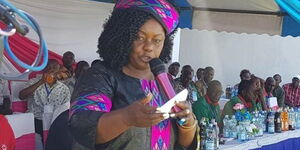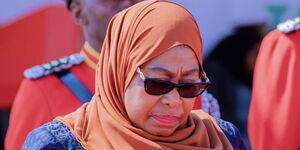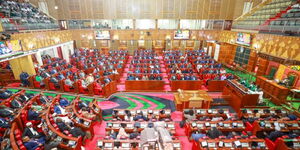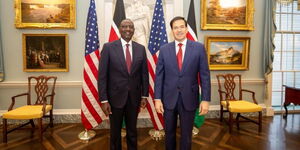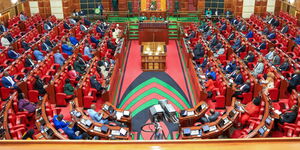President William Ruto has introduced a Lipa Polepole scheme for the Social Health Authority (SHA) insurance contributions targeting Kenyans working in the informal sectors.
Speaking at the 62nd Madaraka Day celebrations in Homa Bay, Ruto declared that Kenyans would now have the option to pay their yearly premiums in instalments or through a flexible payment plan.
''To address persistent challenges such as irregular premium payments, especially among the informal sector, the government of Kenya is introducing an inclusive payment solution known as lipa SHA polepole,'' Ruto announced.
According to the Head of State, the new directive will enable families to make payments in installments based on their preference.
''This initiative will enable Kenyans to remit their annual SHA contributions through flexible, manageable installments, whether monthly, weekly, or even daily, based on their financial abilities,'' he added.
He added that the new payment plan has been made possible through a partnership between the Ministries of Health, Cooperatives, financial and mobile network providers through the Hustler Fund.
Meanwhile, Ruto noted that 50,000 Kenyans have registered with the SHA, with the authority having fully covered treatment for a total of 4.5 million Kenyans.
On Tuesday last week, the World Bank urged the government to reconsider adjustments to the Universal Health Coverage (UHC), which birthed the Social Health Insurance Fund (SHIF), amid growing concerns from Kenyans.
In its latest report released on May 27 under the theme Public Finance Review (PFR), the international lender called for a review of both the rollout and the approach to funding the programme, especially the financial burden placed on citizens from the informal sector.
The bank warned that implementing SHIF in an economy dominated by informal employment would pose serious funding constraints, projecting that the scheme would only raise Ksh67 billion annually, far below its Ksh157 billion target.
It also advised the government to exempt low-wage earners in the formal sector from SHIF contributions.
The lender further called for SHIF collections to be concentrated on formal sector workers, with the government directly subsidising contributions for informal workers and vulnerable groups to promote equity in access to healthcare.

